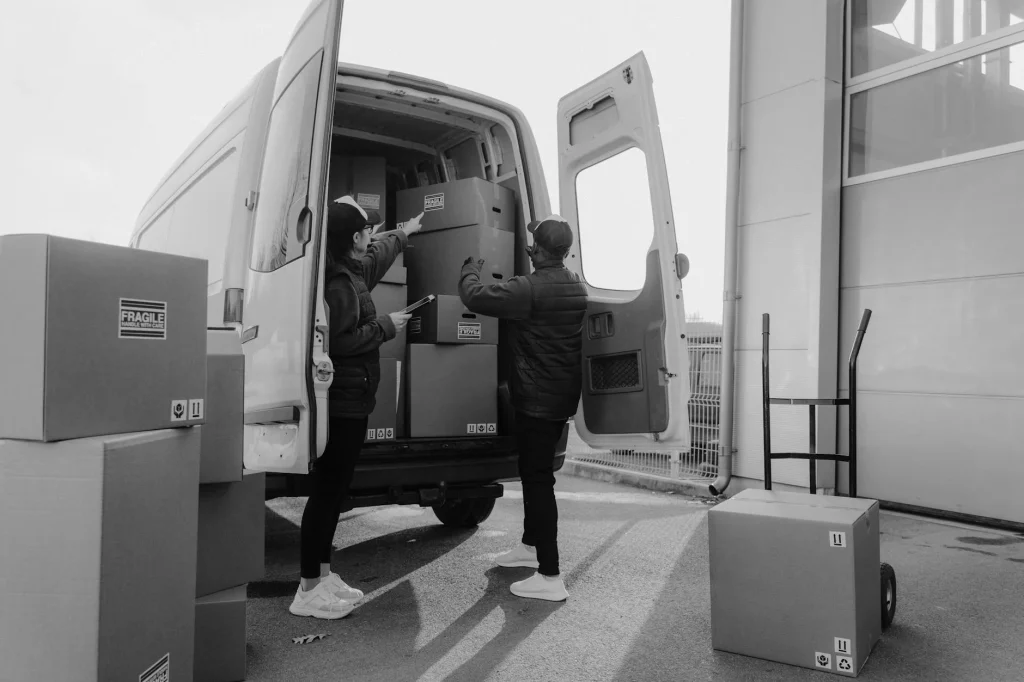As global commerce grows more complex, logistics companies are under pressure to deliver faster, cheaper, and more transparently. In 2025, the winners in logistics won’t just be those with more trucks or warehouses—they’ll be the ones with better software. That’s where custom app development for new businesses becomes a game-changer.
From fleet tracking to warehouse automation, logistics companies are turning to scalable, connected, and AI-enabled platforms. In this article, we’ll explore how modern logistics businesses are embracing startup workflow automation tools, CRM software for tech startups, and robust business automation platforms to gain a competitive edge.
1. Real-Time Fleet Visibility With Custom Tracking Apps
Legacy logistics platforms often suffer from poor integration and slow updates. Now, with custom app development for new businesses, logistics firms are building GPS-based fleet tracking tools tailored to their dispatch and routing logic.
- Live updates on vehicle status and ETA
- Smart routing suggestions based on traffic or weather
- Geo-fencing and automated customer notifications
Moreover, these tools improve customer service and reduce delivery disputes significantly. Furthermore, they enable dispatch teams to proactively address issues before they escalate, creating a smoother delivery experience for end customers.
2. Warehouse Workflow Automation
Manual spreadsheets and phone-based coordination can’t keep up with modern demand. Instead, companies are using startup workflow automation tools to streamline:
- Inbound goods check-in
- Bin allocation and real-time inventory tracking
- Outbound order picking and packing
As a result, warehouse efficiency improves while reducing human error and downtime. Additionally, real-time data collection enables predictive analytics that can help optimize future inventory flows and stocking levels across multiple locations.
3. Centralized Business Dashboards
Top-performing logistics companies rely on a unified business automation platform to manage KPIs across operations, customer support, and finance. Through role-based dashboards, managers get visibility into:
- Fleet utilization and delivery timelines
- Warehouse throughput metrics
- Live customer satisfaction scores
Additionally, these platforms integrate with accounting tools and CRMs for seamless workflow syncing. Not only does this streamline administrative tasks, but it also creates a real-time overview of business performance, allowing quicker strategic decisions and continuous improvement cycles.
4. Smarter Customer Management
Clients expect timely updates and faster issue resolution. That’s why CRM software for tech startups—customized for logistics—is being used to:
- Track service history and SLAs by client
- Assign tickets and complaints to relevant teams
- Trigger automated feedback requests and NPS surveys
This not only increases retention but also gives sales teams valuable insight for upselling services. More importantly, data-driven CRMs create a personalized client experience that can differentiate your business in a highly competitive logistics environment.
5. Internal Communication and Driver Coordination
Clear internal communication is crucial in logistics, especially for dispatchers and on-ground staff. With internal communication software, companies can:
- Send route updates instantly to drivers
- Create warehouse-specific discussion channels
- Notify staff of urgent delivery issues or delays
Therefore, coordination improves dramatically across hubs, shifts, and time zones. Likewise, it helps teams respond faster to external changes such as traffic disruptions or changes in delivery instructions, thereby minimizing risk and delay.
6. Predictive Analytics and AI Integration
In 2025, predictive analytics is no longer optional—it’s foundational. AI-driven logistics platforms built through custom app development for new businesses offer features like:
- Forecasting delays and optimizing delivery routes
- Predictive maintenance scheduling for fleet vehicles
- AI-based customer support bots for instant resolution
These intelligent systems not only reduce operational costs but also deliver a smarter and more responsive experience for customers and employees alike.
7. Enhanced Security and Compliance Tracking
Custom logistics software can also ensure regulatory compliance and security through:
- Driver hours of service (HOS) tracking
- Automated safety inspection reminders
- Audit trails and document verification systems
This is especially important for companies managing cross-border shipping, hazardous materials, or large-scale fleets where penalties for non-compliance can be costly.
Bonus: Supporting Tools That Accelerate Logistics Efficiency
Incorporating features like a team management platform and productivity dashboard for small teams helps manage shift patterns and workload balancing. Meanwhile, project tracking tools for startups are used to manage software rollouts, depot launches, or vendor transitions.
In addition, integrations with third-party services such as payment gateways, fuel trackers, and ERP systems allow companies to build an ecosystem tailored for maximum efficiency and control.
Conclusion: The Smartest Logistics Teams Are Going Digital
Custom-built logistics systems aren’t just efficient—they’re a strategic asset. By implementing tools like custom app development for new businesses, CRM software for tech startups, internal communication software, and business automation platforms, companies can dramatically reduce friction across the supply chain.
Moreover, investing in tailored digital tools sets the foundation for long-term scalability, operational resilience, and superior customer satisfaction. The logistics businesses that modernize now will dominate the next decade.
